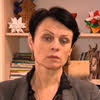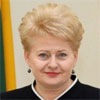When news broke in mid-January that older girls at a special boarding school in southwestern Lithuania had been pimping out their younger classmates to men – at times on school property – many rushed to excoriate the school’s principal and teachers, as well as the local government.
Then Laima Navickiene, principal of the Sveksna Special School in the Silute region, added fuel to the fire. She said “these kinds of things” are common in Lithuania’s special-education and foster-care establishments, prompting President Dalia Grybauskaite to call for Navickiene’s ouster and an overhaul of the special-ed system.
Things only got worse. In mid-March, law enforcement officials announced they were investigating claims that the director of a foster home in Viesvile, a small town in the Jurbarkas region located about 80 kilometers (50 miles) from Sveksna, was at the center of a pedophile ring. Boys as young as 15 living at the home were allegedly being exploited by the director and well-to-do men.
The two schools are among nearly 100 that are Lithuania’s main providers of foster care to about 4,000 orphans and children with absent parents or emotional or psychological disabilities. The country’s foster-family system, which could serve as an alternative, is underdeveloped.
If Navickiene is right, the dysfunction goes beyond one or two rotten institutions, and the scandals have some experts calling for an overhaul of how the country takes care of troubled children.
“I’m glad these horrible things in Sveksna and Viesvile came to light,” said Linas Slusnys, a prominent child psychiatrist in Vilnius. “They show how putrid the special-education system is. Education centers like those two have to be dismantled.”
So far, the authorities’ focus has been on the criminal investigations.
Ruslanas Usinskas, a prosecutor for Klaipeda County, which includes Silute, said the school case there is ongoing and charges have been brought against seven people. Those charges, which carry penalties of three to 10 years in prison, include luring a minor into prostitution and engaging in sexual intercourse with a minor for money or other form of reward.
The schoolgirls at Sveksna would usually be paid in cigarettes or trinkets, Kristina Misiniene of the Catholic charity Caritas told the 15min.lt news website.
That men would turn up at the school gate, often in expensive cars, looking to have sex with prepubescent girls is not news to Navickiene, the principal.
“Some of the men are very obnoxious, trying to sneak into the school. Sometimes our workers have to hold the door to prevent them from entering,” she told local media. “But some of the girls can also be sneaky, lying to staff that they need to take garbage outside. Some girls slip away from the carers wearing only slippers.”
In Viesvile case, prosecutors say Algimantas Liaudaitis, director of the foster home, is a suspect, although he has not been indicted. Liaudaitis is also the appointed chairman of the Viesvile seniunija, or eldership, an administrative unit common in small Lithuanian regions and villages.
Not everyone in the two communities believes the allegations, especially as they come from children with a history of behavioral or psychiatric problems. That doesn’t surprise Slusnys.
“There’s a certain emotional maturity each parent, child-care specialist, educator, and mental-health specialist has to have when dealing with the complex issues of child abuse. Many people just don’t have it, obviously,” the psychiatrist. “It explains why adults are often ambivalent about child abuse.”
Still, he said, police techniques for dealing with such cases have come a long way in the past decade.
In the past, Slusnys said, police “would require from minors, sex-abuse victims, direct proof and detailed affidavits – all of which was impossible due to the nature of crime. Those kinds of investigations would usually zero in on the victimized child, not the perpetrator. Now it’s different – the police work to collect indirect proof, which is often crucial in crimes against children.”
Reda Sasiene, a former teacher at the Viesvile school and now a deputy elder for the town, said the local rumor mill had been churning with tales of boys spending too much time in the director’s office, disappearing from the home on weekends, and flashing expensive gadgets
Calling the schools under suspicion “the state’s shame,” Grybauskaite said that “the increasing incidence of child abuse has revealed real problems in protecting children’s rights.” The president called on the schools to stop shifting blame, “shake off the bureaucratic approach and take concrete action.”
According to the government’s Child Rights Protection and Adoption Service, the number of cases of child abuse in Lithuania – which has a population of 2.9 million – has hovered around 1,300 a year since 2012, with the Interior Ministry reporting 1,337 victims in 2014. Sex-abuse cases involving minors have averaged 81 annually over the past three years, according to children’s rights service, with most incidents involving children aged 10 to 14.
Deputy Education Minister Genoveita Krasauskiene said a working group has been set up to formulate proposals for possible changes to the foster-care and special-ed systems.
“Obviously, the existing system has to be overhauled and de-institutionalized to some extent,” Krasauskiene said. “Fewer children in foster homes and special-care schools, more attention on the families, stepped-up screening of personnel in the establishments, and more awareness about child abuse are the milestones we may need to go for.”
In the wake of the scandal, the ministry is in the process of taking over the Sveksna Special School from the Silute municipality, but Algirdas Gecas, Silute’s deputy mayor, questions whether that is the right approach.
“People tend to forget the school was managed by the Education Ministry before. And the reason the municipality took it over was an attempt to make it a better school,” Gecas said.
The deputy mayor said that in 2010, when the local government took over the school, it “seemed suspended in time – it was dilapidated and looked like a Soviet-era school.” He said the municipality has poured significant funds into upgrading the facility.
“I’m not qualified to say what needs to be done to prevent child abuse in the schools. But reducing the number of children, bringing in more skilled personnel, and working on the spot with the troubled families from which the children come to foster homes and special schools sounds like a logical solution,” Gecas said.
Sasiene, who spent time in Belgium studying that country’s child-care system during her tenure as a teacher at Viesvile, recalled seeing a small “family style” foster home “with a couple dozen children receiving guardianship and support from a skilled team of specialists.”
But Sasiene said she fears that before Lithuania gets to that point, the current scandal will blow over and the broken system will remain in place.
“Changing the status of the school will make no difference. I believe the starting point should be the families from which the children come to the schools,” she said.
Slusnys, too, said Lithuania should cultivate a system of foster families and the number of institutions should be cut.
“There are too many institutions catering to the child, but often no one is around when there is a need for help,” the psychiatrist said.
“If the sordid events in the two facilities don’t trigger a thorough overhaul of the obviously flawed and often damaging foster care system,” he added, “then we may not get another chance for many years.”
Linas Jegelevicius is a freelance journalist in Klaipeda, Lithuania. Photo of Laima Navickiene and Dalia Grybauskaitė are from a video by Lithuania’s TV3. This article was originally published on Transitions Online.
Tags: Civil society, Corruption, Policy, Students


